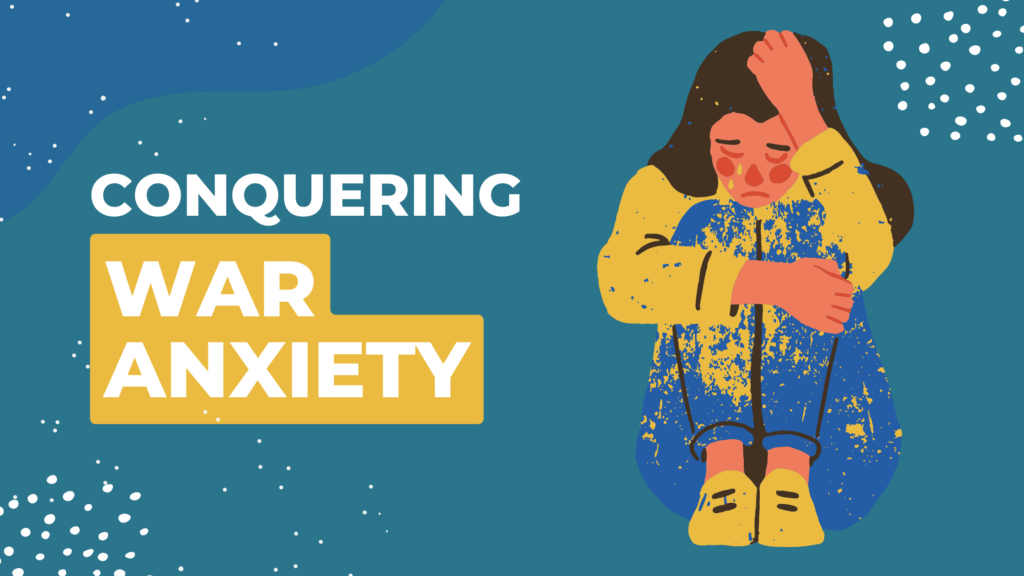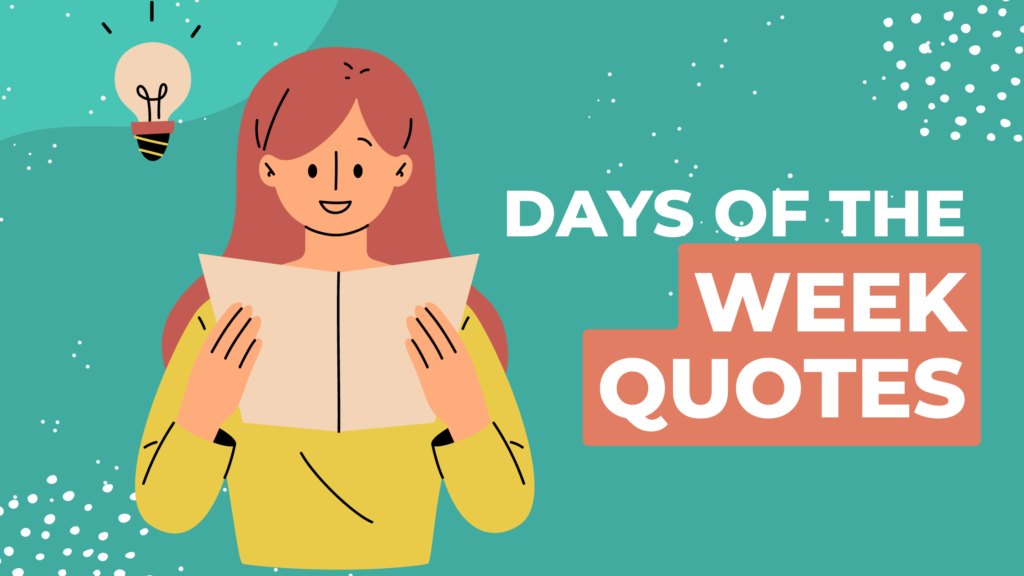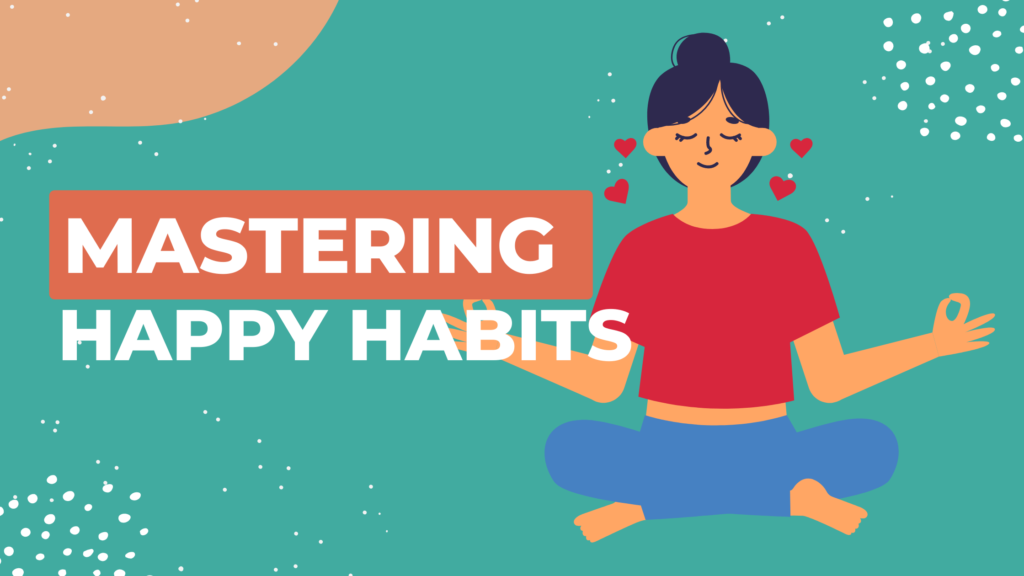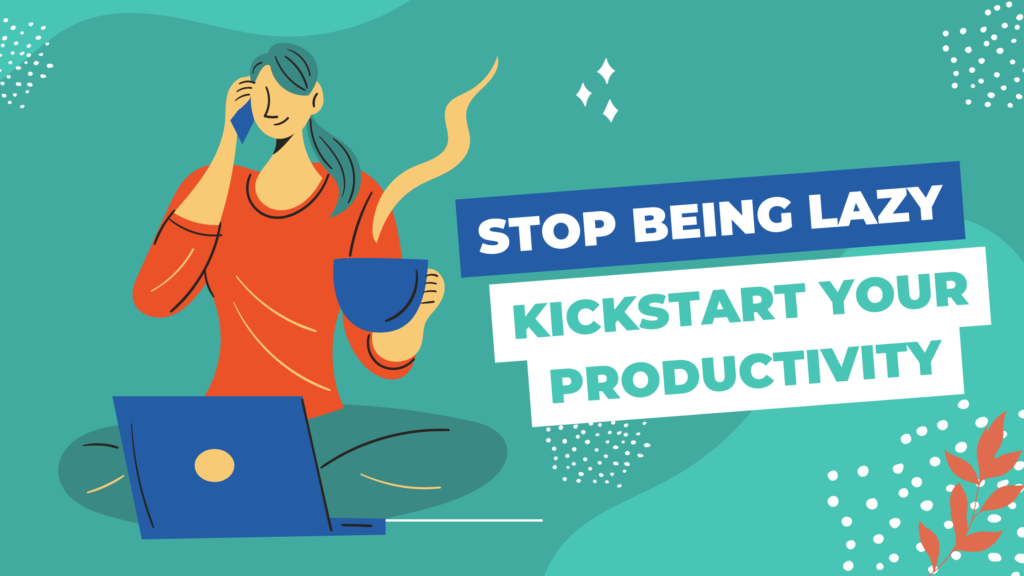When russia invaded Ukraine on February 24, 2022, the world took notice. When russian president vladimir putin referred to his country’s nuclear readiness, the world grappled with fear and the possibility of a violent war.
As the war between the two countries continues to unfold, war anxiety is understandable, and it can have significant effects on our mental and physical well-being.
In fact, studies show that up to 20% of the population in war-affected countries suffer from anxiety disorders.
But, by understanding how the flow of information about the war is impacting your mental health, you can take steps to protect your well-being and maintain a sense of peace.
In this article, we’ll explore the nature of war anxiety in the context of the Ukraine war, the reasons why it’s crucial to address it, and actionable steps you can take to become more resilient.
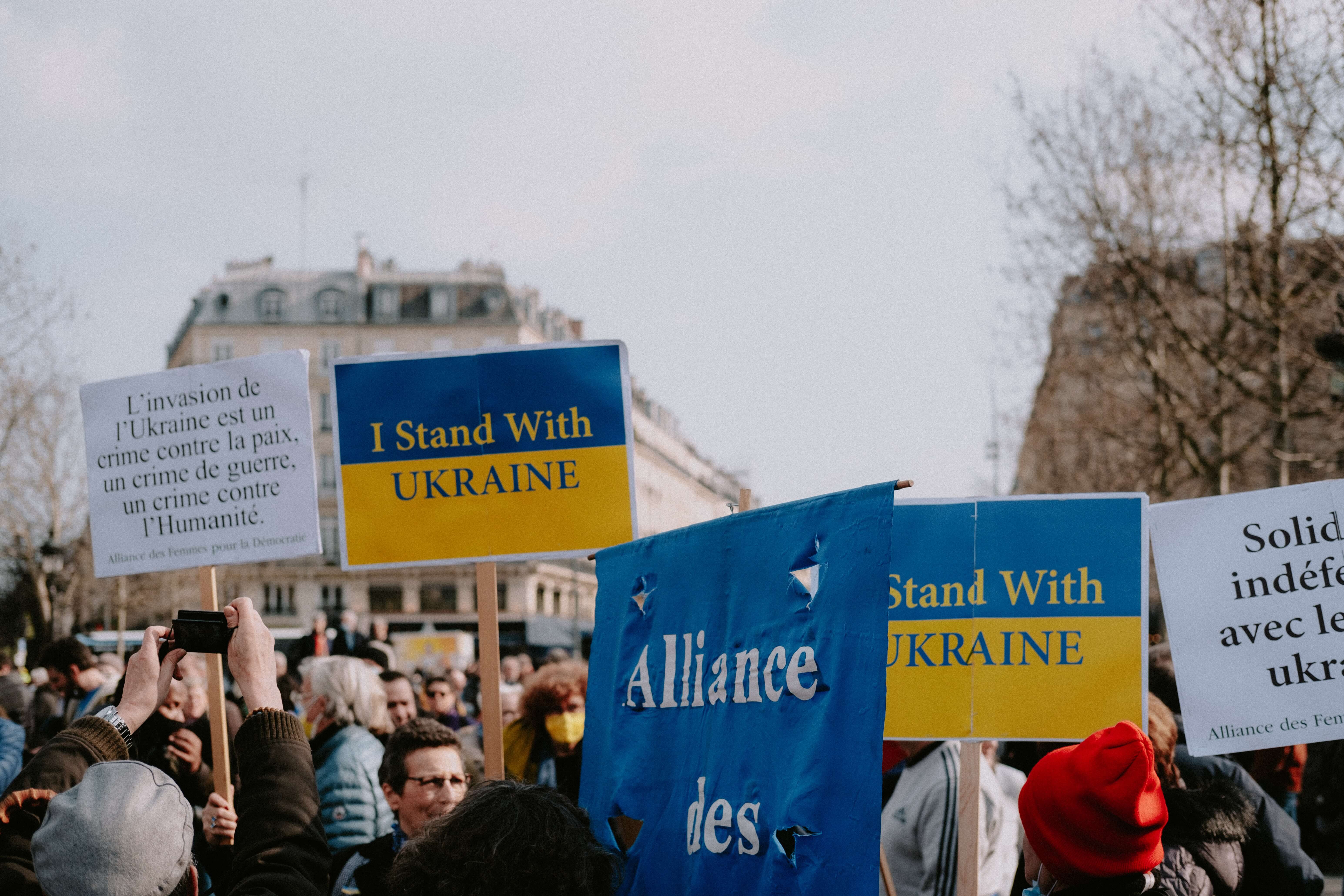
Why Is It Important to Address War Anxiety?
War anxiety can have significant physical and emotional effects on individuals, including increased heart rate, difficulty sleeping, and intrusive thoughts. Left unaddressed, war anxiety can also lead to more severe mental health conditions such as depression, PTSD, and substance abuse.
In addition to the individual impact, war anxiety can also have a broader societal impact, including increased healthcare costs and reduced work productivity.
Conquering War Anxiety and Building Resilience
In this article, we will provide you with actionable strategies for conquering war anxiety and building resilience. We believe that by implementing the tips and strategies outlined in this article, you will be better equipped to manage your war anxiety and lead a healthier, more fulfilling life.
Throughout the rest of this article, we will explore the causes and symptoms of war anxiety, as well as practical self-care strategies, mindfulness techniques, and cognitive-behavioral strategies for challenging negative thoughts and beliefs. We will also discuss the importance of building resilience and seeking professional help when necessary.
Let’s get started on the path to conquering war anxiety and building resilience!
Understanding War Anxiety
In this section, we’ll explore what war anxiety is, what causes it, and what symptoms individuals may experience.
Definition of War Anxiety
War anxiety is a type of anxiety disorder that is triggered by exposure to war, violence, or conflict. It is a natural reaction to the stress and fear that these experiences can evoke. War anxiety can occur in individuals who have directly experienced war or violence, as well as those who have been indirectly exposed through media coverage, social media, or conversations with others.
Causes of War Anxiety
There are many causes of war anxiety, including:
- Exposure to traumatic events, such as war, conflict, and violence
- Personal or family history of anxiety disorders
- Genetic predisposition to anxiety disorders
- Chronic stress, such as financial or relationship problems
- Environmental factors, such as exposure to pollutants
Symptoms of War Anxiety
Individuals experiencing war anxiety may experience a range of physical, emotional, and behavioral symptoms, including:
- Increased heart rate and blood pressure
- Sweating or trembling
- Difficulty sleeping or nightmares
- Intrusive thoughts or flashbacks
- Avoidance of places, people, or situations that trigger anxiety
- Feelings of fear, panic, or dread
It’s important to note that everyone experiences anxiety differently, and not everyone will experience all of these symptoms.
The Impact of War Anxiety
In this section, we’ll explore the impact that war anxiety can have on individuals, including its physical, emotional, and behavioral effects.
Physical Effects of War Anxiety
War anxiety can have significant physical effects on individuals, including:
- Increased heart rate and blood pressure
- Muscle tension and pain
- Gastrointestinal problems, such as nausea or diarrhea
- Weakened immune system
- Chronic fatigue
The physical effects of war anxiety can also increase the risk of other health problems, such as cardiovascular disease and chronic pain.
Emotional Effects of War Anxiety
War anxiety can also have a significant impact on individuals’ emotional well-being, including:
- Increased levels of stress and worry
- Feelings of fear, panic, and helplessness
- Difficulty concentrating or making decisions
- Irritability and mood swings
- Depression or feelings of hopelessness
The emotional effects of war anxiety can impact an individual’s relationships, work performance, and overall quality of life.
Behavioral Effects of War Anxiety
War anxiety can also impact an individual’s behavior, including:
- Avoidance of situations or places that may trigger anxiety
- Increased use of drugs or alcohol as a coping mechanism
- Social isolation and withdrawal
- Difficulty with relationships and communication
- Poor work performance or attendance
The behavioral effects of war anxiety can further impact an individual’s emotional and physical health, as well as their ability to function in daily life.
It’s important to address war anxiety and its impact on individuals’ overall health and well-being. In the next section, we’ll explore practical tips and strategies for conquering war anxiety and building resilience.
Tips for Conquering War Anxiety
In this section, we’ll explore practical tips and strategies for conquering war anxiety and building resilience.
Self-Care Strategies for Managing War Anxiety
Self-care strategies can help individuals manage war anxiety by promoting overall physical and emotional well-being. Some self-care strategies to consider include:
- Regular exercise or physical activity
- Eating a healthy and balanced diet
- Getting enough sleep and rest
- Practicing good hygiene
- Limiting exposure to news or media coverage of war or conflict
Mindfulness and Relaxation Techniques for Reducing War Anxiety
Mindfulness and relaxation techniques can help individuals reduce war anxiety by promoting relaxation and reducing stress. Some mindfulness and relaxation techniques to consider include:
- Deep breathing exercises
- Progressive muscle relaxation
- Yoga or meditation
- Guided imagery
- Listening to calming music or sounds
Cognitive-Behavioral Strategies for Challenging Negative Thoughts and Beliefs about War Anxiety
Cognitive-behavioral strategies can help individuals challenge negative thoughts and beliefs about war anxiety, and develop more positive and realistic ways of thinking. Some cognitive-behavioral strategies to consider include:
- Identifying and challenging negative thoughts and beliefs
- Practicing positive self-talk and affirmations
- Using relaxation techniques to manage physical symptoms of anxiety
- Gradually exposing oneself to anxiety-provoking situations
- Seeking support from a mental health professional if needed
By incorporating these tips and strategies into their daily routine, individuals can conquer war anxiety and build resilience. It’s important to remember that everyone’s journey to conquering anxiety is unique, and it may take time and effort to find what works best for each individual.
5 Ways to Cope with War Anxiety
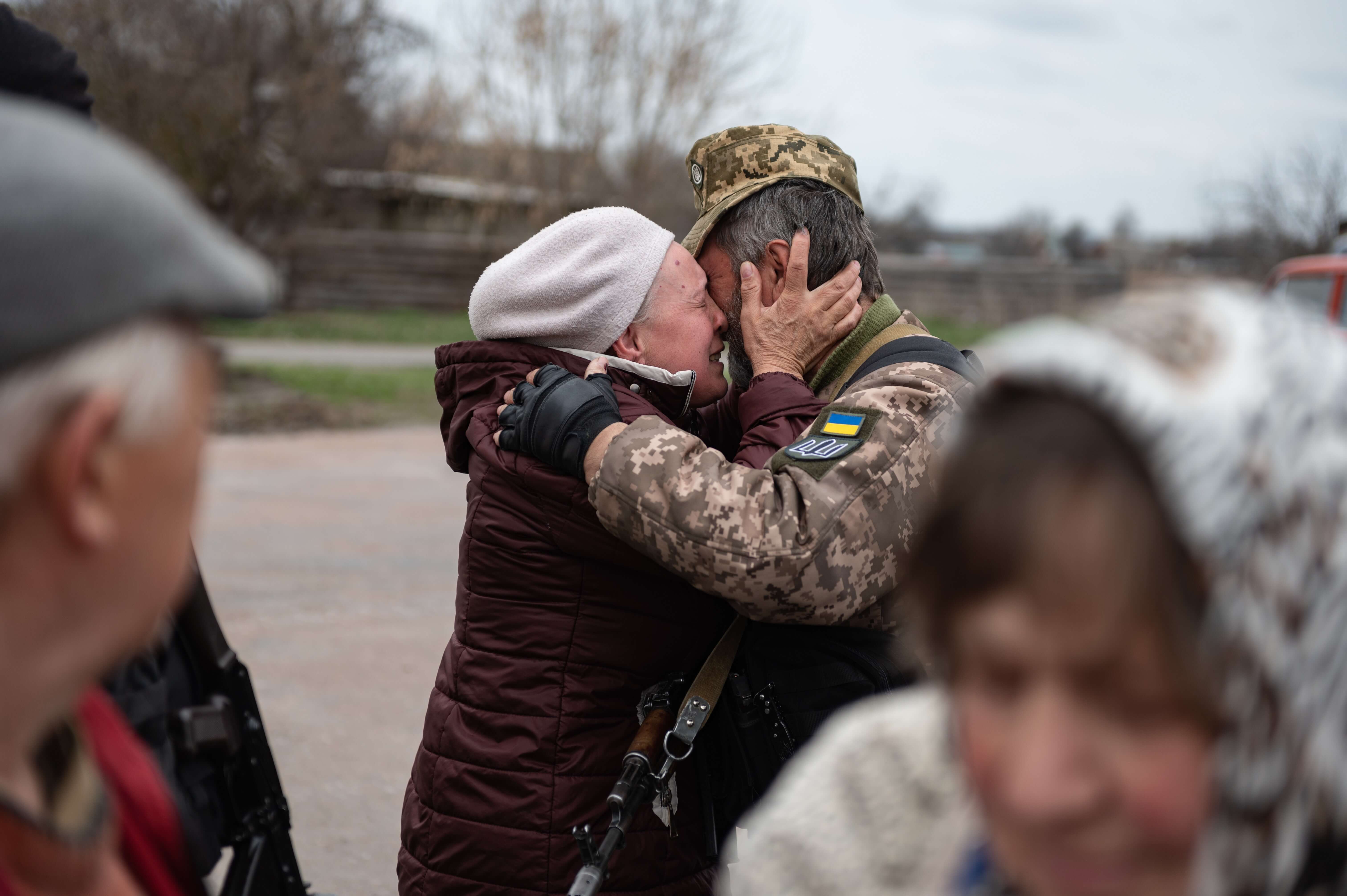
- Limit your exposure to news
While it’s important to stay informed about the conflict, constantly checking the news can increase your anxiety levels. Commit to a specific time period each day, such as 30 minutes, to catch up on the latest updates.
- Set boundaries for social media
Social media can be a source of stress and anxiety, especially during times of war.
- Set a definitive number of click-throughs you allow yourself, such as 5 articles or 3 sites, and limit the sites you connect with.
- Consider muting or unfollowing profiles that add to your anxiety about the war.
- Practice self-care
Engage in activities that promote relaxation and well-being, such as exercise, meditation, or spending time with loved ones. Take breaks from work and other stressors to prioritize self-care.
- Seek support
Don’t hesitate to reach out to friends, family, or a mental health professional if you need support. Speaking with others who share similar experiences can help you feel less isolated and anxious.
- Take action
While there may be limited things you can do to directly affect the situation, taking action can help you feel empowered and less helpless. Consider volunteering with organizations that support affected communities, donating to relief efforts, or contacting your elected officials to express your concerns.
Building Resilience
In this section, we’ll explore the concept of resilience and how it can help individuals overcome war anxiety.
Definition of Resilience
Resilience is the ability to adapt and recover from adversity or stress, and to maintain positive mental health and well-being despite challenging circumstances.
Importance of Building Resilience in Overcoming War Anxiety
Building resilience is important in overcoming war anxiety because it helps individuals to:
- Manage stress and anxiety more effectively
- Cope with adversity and setbacks
- Maintain positive relationships and social support
- Develop a more positive outlook and mindset
- Maintain physical and emotional well-being
Strategies for Building Resilience
There are several strategies that individuals can use to build resilience and overcome war anxiety, including:
- Developing positive coping skills, such as meditation or exercise
- Cultivating a strong support system of friends and family
- Building a positive and supportive work environment
- Engaging in activities that bring joy and fulfillment
- Developing a strong sense of purpose and meaning in life
It’s important to remember that building resilience is an ongoing process that requires commitment and effort. By incorporating these strategies into their daily routine, individuals can build resilience and overcome war anxiety. Additionally, seeking support from a mental health professional can also be helpful in developing effective coping strategies and building resilience.
Seeking Professional Help
In some cases, professional help may be necessary to effectively manage and overcome war anxiety. In this section, we’ll explore when to seek professional help, the types of therapy and treatment available, and how to find a qualified mental health professional.
When to Seek Professional Help for War Anxiety
Individuals may want to consider seeking professional help for war anxiety if:
- Anxiety is interfering with their ability to function in daily life
- Anxiety is causing significant distress or impairment
- Self-help strategies are not effective in managing anxiety
- Anxiety is accompanied by other mental health conditions, such as depression or post-traumatic stress disorder (PTSD)
Types of Therapy and Treatment for War Anxiety
There are several types of therapy and treatment options available for war anxiety, including:
- Cognitive-behavioral therapy (CBT): This type of therapy focuses on identifying and changing negative thought patterns and behaviors related to anxiety.
- Exposure therapy: This type of therapy involves gradually exposing individuals to anxiety-provoking situations or stimuli in a safe and controlled environment to help them build confidence and resilience.
- Eye movement desensitization and reprocessing (EMDR): This type of therapy uses rapid eye movements to help individuals process and cope with traumatic experiences.
- Medications: In some cases, medications may be prescribed to help manage the physical and emotional symptoms of anxiety.
How to Find a Qualified Mental Health Professional
When seeking professional help for war anxiety, it’s important to find a qualified mental health professional. Some tips for finding a qualified mental health professional include:
- Asking for referrals from a primary care physician or trusted healthcare provider
- Checking with insurance providers to see which mental health professionals are covered
- Researching mental health professionals online and reading reviews from other patients
- Interviewing potential mental health professionals to ensure a good fit and to ask about their approach to treating anxiety.
By seeking professional help and using evidence-based therapies and treatments, individuals can effectively manage war anxiety and improve their overall well-being.
Summing Up
War anxiety is a common response to the threat of conflict and violence, but it can have significant physical, emotional, and behavioral effects.
This article provided tips for managing and reducing war anxiety, including self-care strategies, mindfulness, and cognitive-behavioral techniques. Building resilience is also important, and seeking professional help is an option.
Remember, it’s okay to experience war anxiety, but taking steps to manage it is crucial for overall well-being.

